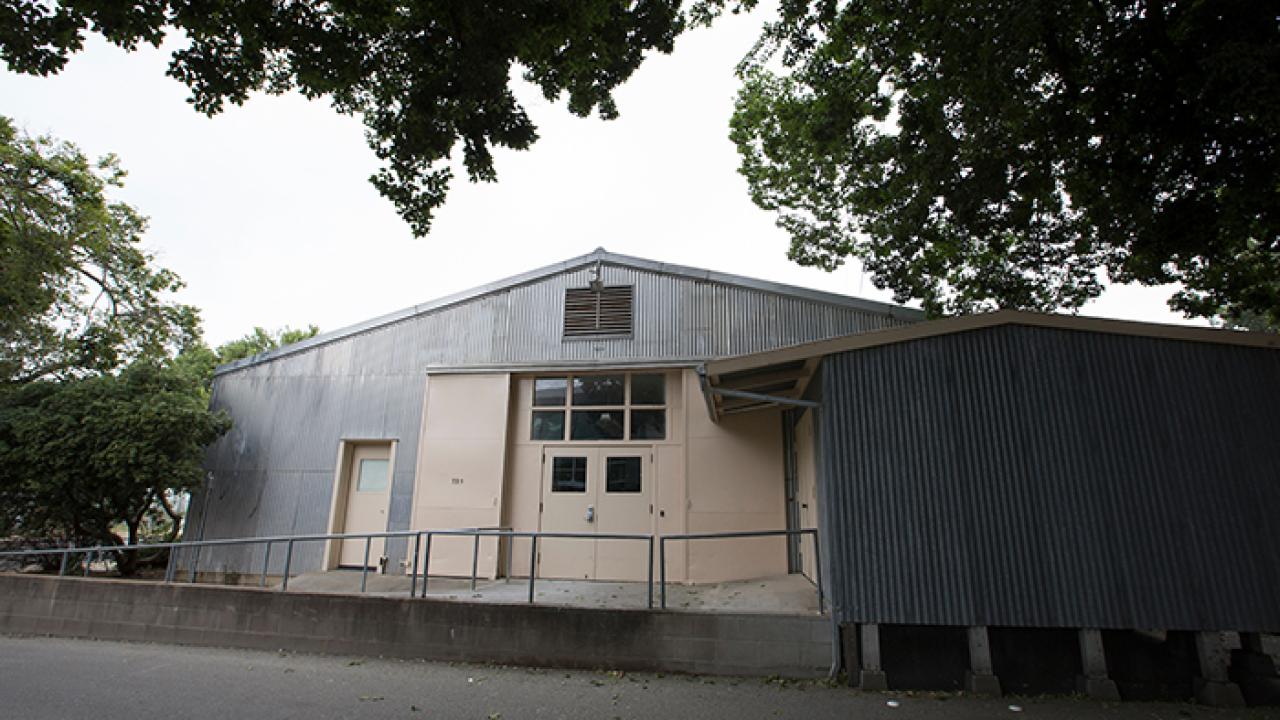In 2016, the Quonset hut known as Temporary Building 9, or TB 9, on the UC Davis campus, was nationally recognized for its importance in art history with its inclusion on the National Register of Historic Places and the California Register of Historical Resources. The modest structure was cited for its significant role in art and art education and its association with the history of ceramic art in both California and the United States.
TB 9’s role in art history continues to evolve today. The following chronology highlights the decades that carry the building, and the Department of Art, from 1958 to the mid ’70s, when Funk and Figurative Ceramics, said to be born at TB 9, were part of an officially recognized art movement.
1958: Department of Art is officially established. Richard L. Nelson is named the chair, and continues in that role until 1966.
1959: Three rooms in TB 9 are allocated for the art department as teaching labs for sculpture classes.
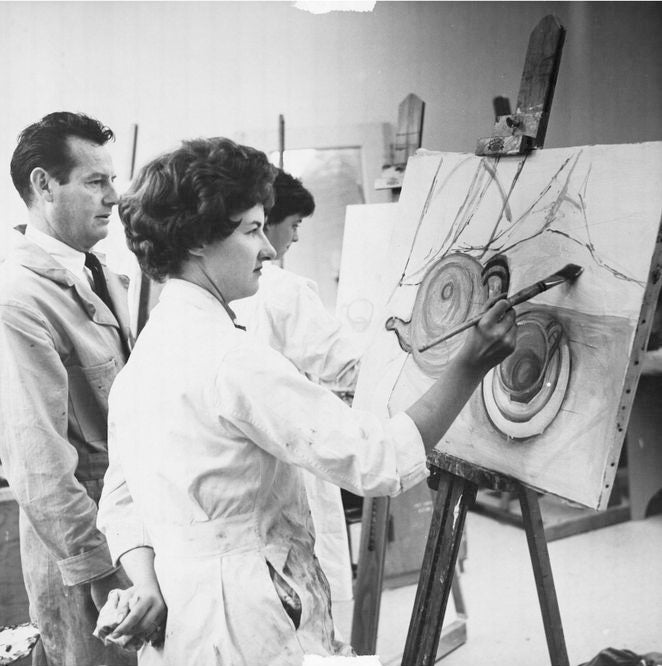
1960: Nelson hires Wayne Thiebaud to teach painting.
1961:
- Tio Giambruni, known for his abstract works in bronze, joins the art department.
- Three more rooms in TB 9 are allocated. More ceramics and sculpture classes added to the courses list.
- Master of Arts degree program in art practice is created.
1962:
- Ruth Horsting moves over from the Department of Home Economics to teach “The Human Figure in Sculpture.”
- William T. Wiley begins teaching that fall.
- Robert Arneson begins teaching design courses in home economics and ceramics courses in the art department.
- Roland Petersen begins teaching in the department.
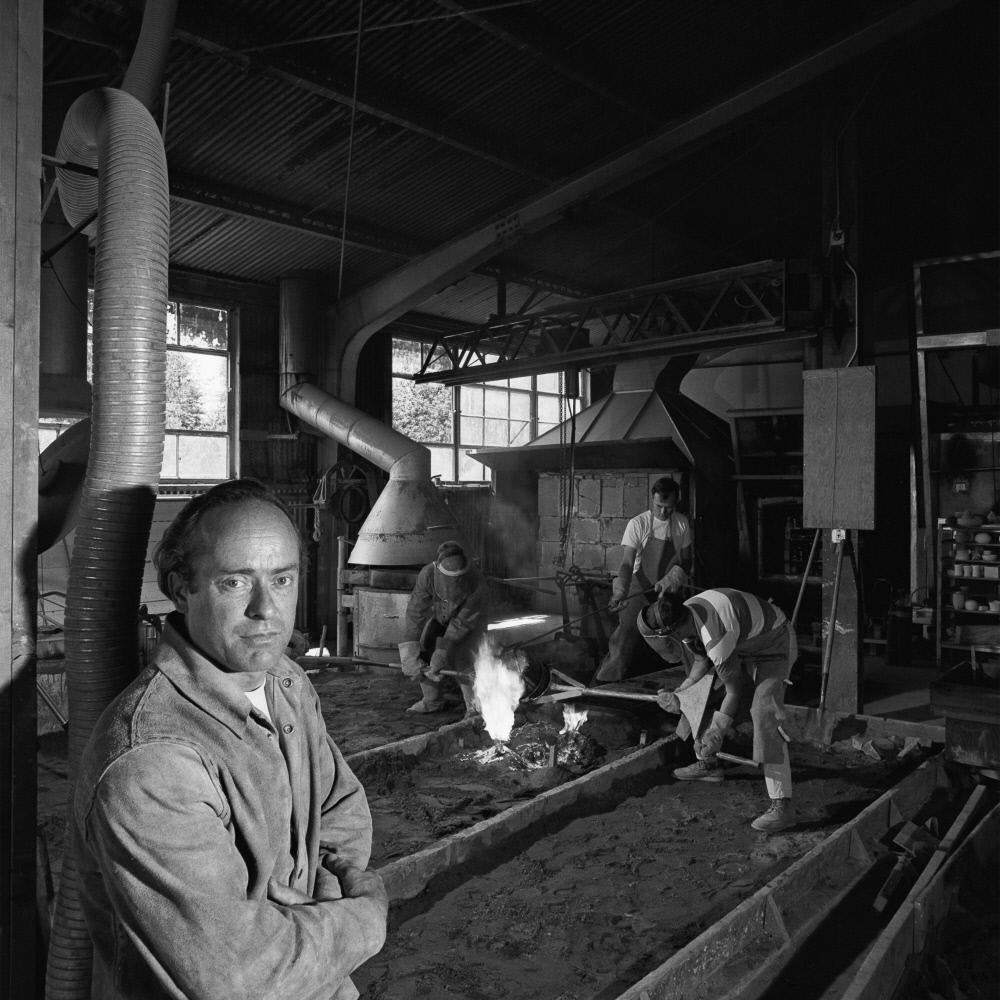
1963:
- Giambruni completes the design and construction of a bronze foundry in TB 9.
- John Baxter, known for works in wood and found natural objects, joins the art faculty.
- Jane Garritson joins to teach art education. (She transferred to the Department of Education in 1971.)
1965:
- Manuel Neri and Roy De Forest join the art department.
- Arneson and Horsting become full-time faculty in the art department.
- Arneson executes his first life-size bust: Self Portrait of of the Artist Losing His Marbles.
- Artist Bruce Nauman, a grad student at the time, inserts himself, physically, into his artwork.
1966:
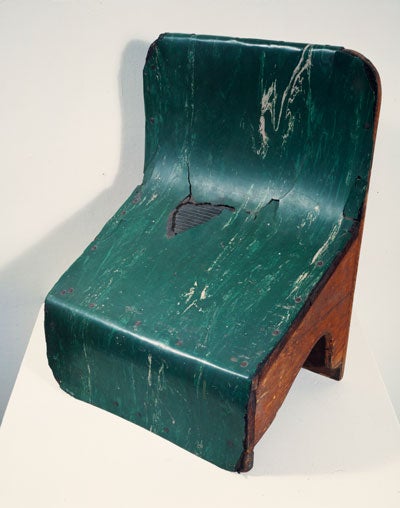
- Ceramics from Davis is an exhibition at the Museum of American Craftsman’s Council, San Francisco, and includes faculty and student works.
- Ralph Johnson, member of the faculty since 1957, begins series of “chair sculptures.”
- Art department moves into Art Building, with additional classes at TB 9.
- Ceramics course is expanded to two courses to include ceramic color and glazes.
- Richard Cramer succeeds Nelson as department chair.
- The Slant Step Show is held at the Berkeley Gallery, San Francisco, conceived by Wiley and others. The show centers around a linoleum-covered wooden step that Wiley found. (The step was made part of the university’s permanent collection in 2012. More information in this story.)
1967: Funk Art is “born”
“Funk” exhibition in Berkeley includes a number of UC Davis artists, including Arneson, David Gilhooley, De Forest, Neri and Wiley. Thereafter, these artists are known as “funk” artists.
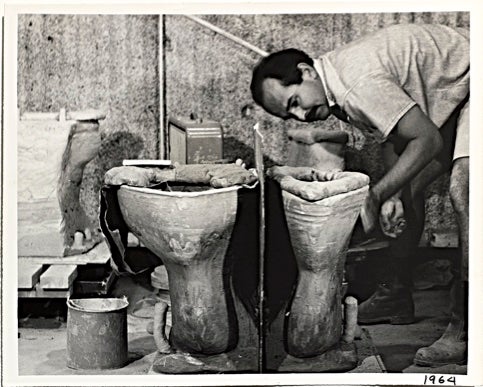
1969:
Giambruni’s Bum, Bum, You’ve Been Here Before, a cast aluminum and bronze (a new forge) sculpture created at the foundry in TB 9, is installed on the central median of Russell Boulevard. It now sits on the UC Davis campus on Hutchison Drive across the street from Shields Library.
1970:
- Slant Step show is held in Sacramento.
- Arthur Schade teaches introductory sculpture as a visiting artist.
1973:
- “Out Our Way #1,” a collaborative production of the dramatic art and art departments in Main Theatre, coordinated by William T. Wiley and others. In later years, there was an “Out Our Way #2.”
- Deborah Butterfield is among many artists who receive her UC Davis MFA that year.
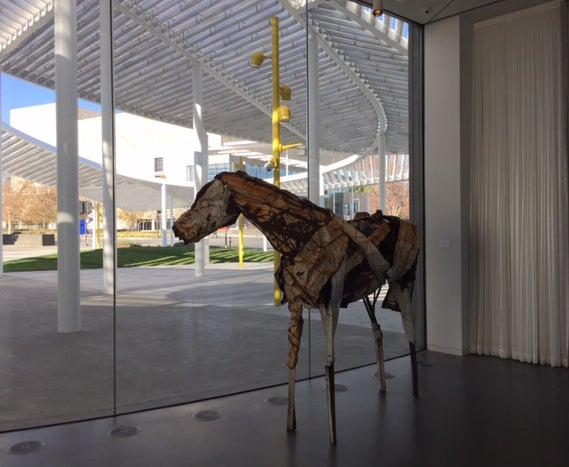
Deborah Butterfield's “John” is now displayed in the Manetti Shrem Museum front window. Welded and found steel, Fine Arts Collection, Jan Shrem and Maria Manetti Shrem Museum of Art, UC Davis. Gift of Ed Nicoll and Helen Kent-Nicoll, 2017. (Karen Nikos-Rose/UC Davis)
1976:
Paintings and Sculpture in California: The Modern Era, is exhibited at the San Francisco Museum of Art and includes various UC Davis faculty and graduates.
This history was adapted from an early UC Davis document and other sources.
Media Resources
Karen Nikos-Rose, News and Media Relations, UC Davis, 530-219-5472, kmnikos@ucdavis.edu
